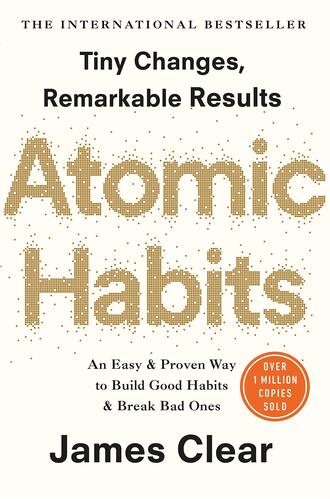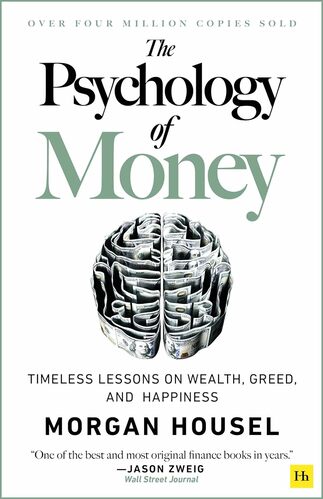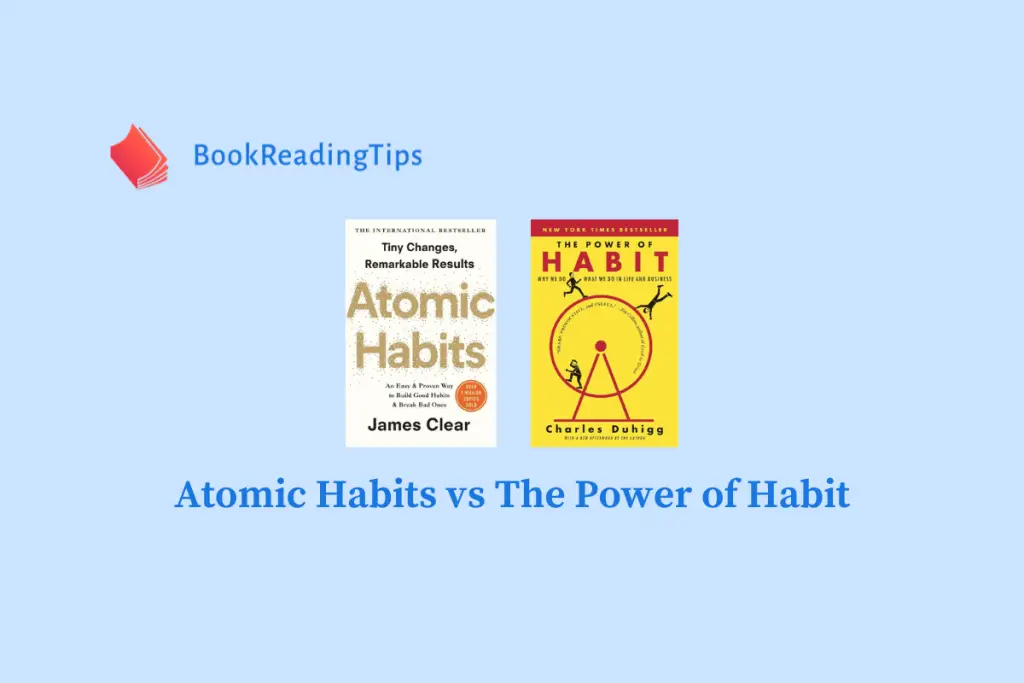Atomic Habits by James Clear and The Psychology of Money by Morgan Housel are two invaluable books that have impacted millions of lives worldwide. Atomic Habits dives deep into the world of habit formation and how small changes can make a significant impact on our lives. On the other hand, The Psychology of Money is a brilliant exploration of how our perceptions and attitudes toward money shape our financial decisions and ultimately, our lives. Both books offer a wealth of insights and practical advice, yet they approach life improvement from different angles.
In my opinion, the primary difference between the two books lies not just in their subject matter, but also in their approach to personal development. Atomic Habits focuses on the power of small, incremental changes and how they can lead to remarkable results over time. It’s a must-read for anyone seeking to break bad habits and establish good ones. The Psychology of Money, however, is all about understanding our relationship with money. It’s a must-read for anyone looking to gain a healthier perspective on wealth, investing, and financial success.
I feel that a comparison and in-depth discussion of these two books can offer readers a comprehensive understanding of how habits and money psychology can shape our lives. In the following sections, we will delve deeper into the key ideas, unique insights, and practical advice offered in Atomic Habits and The Psychology of Money. So, whether you’re a self-help enthusiast, a curious reader, or someone seeking to improve your life, stay tuned for an enlightening discussion.
Table of Contents
- Unpacking the Genius of Atomic Habits
- Delving Into the Psychology of Money
- Similarities & Differences Between Both Books
- FAQs
- 1. What is the main focus of Atomic Habits?
- 2. How does the Psychology of Money differ from Atomic Habits?
- 3. Can the principles in Atomic Habits be applied to financial habits?
- 4. Does Psychology of Money offer practical financial advice?
- 5. Which book should I read first, Atomic Habits or Psychology of Money?
- 6. Can reading both books help improve my financial situation?
- Conclusion
Unpacking the Genius of Atomic Habits

i. The Power of Incremental Change
One of the most impactful principles in “Atomic Habits” by James Clear is the concept of small, incremental change. Clear argues that it’s not about making huge, sweeping changes in your life, but about making tiny, almost unnoticeable adjustments to your daily routines. This principle resonates with me because it’s so achievable and takes away the intimidation factor of habit formation.
ii. Consistency Over Intensity
Another principle that stands out in “Atomic Habits” is the emphasis on consistency over intensity. Clear suggests that it’s not about how hard you work at your habits, but how consistently you maintain them. I think this is a crucial point to consider, as it encourages long-term commitment rather than short-term bursts of motivation.
iii. The Four Laws of Behavior Change
Lastly, Clear introduces the Four Laws of Behavior Change: make it obvious, make it attractive, make it easy, and make it satisfying. These laws are designed to guide the process of habit formation, making it more effective and less daunting. In my opinion, these laws are extremely practical and can be applied to any habit you’re trying to form or break.
Delving Into the Psychology of Money

i. Money is Not the Goal
In “Psychology of Money,” author Morgan Housel emphasizes that money itself is not the goal, but rather what it can do for you. I feel this is a refreshing perspective in a world that often equates wealth with success. It challenges us to redefine our relationship with money and consider what we truly value in life.
ii. The Role of Luck & Risk
Housel also explores the role of luck and risk in financial success, arguing that they are far more influential than we might like to admit. This principle resonates with me because it highlights the unpredictability of the financial world and encourages humility and caution.
iii. Long-Term Thinking
Finally, the “Psychology of Money” promotes long-term thinking when it comes to finances. Housel suggests that we should focus on sustainable growth rather than quick wins, and that patience is a key virtue in wealth-building. In my opinion, this principle is particularly relevant in today’s fast-paced, instant-gratification society.
Both “Atomic Habits” and “Psychology of Money” offer valuable insights into habit formation and financial success. They challenge conventional wisdom and encourage a more thoughtful, sustainable approach to personal growth and wealth-building.
Similarities & Differences Between Both Books
Similarities
Both “Atomic Habits” by James Clear and “Psychology of Money” by Morgan Housel offer profound insights into human behavior and how it can be harnessed for personal growth.
In my opinion, the core similarity between the two books is their focus on the power of incremental changes. “Atomic Habits” emphasizes how small, consistent habits can lead to significant transformations over time. Similarly, “Psychology of Money” underscores the importance of regular savings and investments, no matter how small, to build wealth in the long run.
Moreover, both books adopt a psychological perspective to explain their concepts. Clear and Housel delve into the human mind, highlighting how our attitudes, perceptions, and emotions play a crucial role in our actions.
Differences
Despite the shared emphasis on incremental changes and psychological aspects, these books differ significantly in their focus areas and approach.
“Atomic Habits” is primarily a self-help book that provides practical strategies to cultivate good habits and eliminate bad ones. It’s about personal development and self-improvement. Clear uses scientific findings to explain how habits work and how they can be effectively changed.
On the other hand, “Psychology of Money” is more of a personal finance book. It explores the complex relationship between humans and money. Housel uses anecdotes and historical events to illustrate how our understanding of money, risk, and wealth can often be skewed by irrational behaviors and biases.
In terms of tone and style, I feel that “Atomic Habits” is more prescriptive, offering step-by-step guidance to readers. In contrast, “Psychology of Money” is more reflective and thought-provoking, encouraging readers to examine their own attitudes towards money.
While both books provide valuable insights into human behavior, “Atomic Habits” is more focused on habit formation for personal growth, and “Psychology of Money” is centered on our relationship with money and wealth creation.
FAQs
1. What is the main focus of Atomic Habits?
The primary focus of Atomic Habits is on the power of small, incremental changes. The author, James Clear, emphasizes that tiny adjustments in behavior when consistently applied over time, can lead to significant results. It’s not about making massive, immediate changes but about establishing positive, sustainable habits.
2. How does the Psychology of Money differ from Atomic Habits?
While Atomic Habits is about behavior change, Psychology of Money focuses on our perceptions and behaviors around money. Morgan Housel, the author, explores how our unique personal experiences shape our views on money, often more than our financial knowledge does.
3. Can the principles in Atomic Habits be applied to financial habits?
Absolutely. Atomic Habits provides a framework for habit formation that is applicable to any area of life, including financial habits. The book can help you create better money habits, like saving or investing a small amount consistently.
4. Does Psychology of Money offer practical financial advice?
Psychology of Money doesn’t offer specific investment advice. Instead, it provides insights into our psychological relationship with money. It aims to help readers make better financial decisions by understanding their own biases and behaviors.
5. Which book should I read first, Atomic Habits or Psychology of Money?
The order depends on your current needs and interests. If you’re looking to understand and change your behaviors, start with Atomic Habits. If you’re interested in understanding your relationship with money, start with Psychology of Money.
6. Can reading both books help improve my financial situation?
Yes, reading both can be beneficial. Atomic Habits can help you establish positive financial habits, while Psychology of Money can help you understand your financial behaviors and biases. Together, they can provide a comprehensive approach to improving your financial situation.
Conclusion
Both Atomic Habits and The Psychology of Money offer insightful perspectives on human behaviors. Atomic Habits, by James Clear, focuses on developing small, consistent behaviors to achieve significant life changes, emphasizing that success is the product of daily habits. In contrast, The Psychology of Money, by Morgan Housel, explores our complex relationship with money, arguing that understanding this relationship is more vital for financial success than technical knowledge.
While both books delve into behavioral patterns, they differ in focus. Atomic Habits is about habit formation and personal growth, whereas The Psychology of Money is about financial behavior and decision-making. Yet, they share a common theme: our mindset and daily habits significantly impact our lives, whether in personal development or financial success.
Anyone seeking personal growth or financial literacy will find these books beneficial. Atomic Habits is perfect for those wanting to understand the power of habits and how to harness it. The Psychology of Money is ideal for those interested in understanding the emotional and psychological aspects of money management. Both books offer profound insights into how small changes in perspective can lead to significant improvements in our lives.




